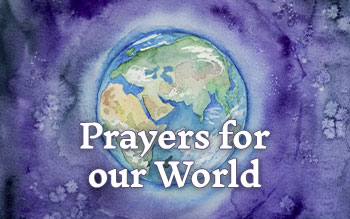Displaying items by tag: disinformation
Russia: aggression
Russian aggression has taken on many different forms. The most glaring example remains the undeclared and ongoing war in eastern Ukraine, which has cost over 14,000 lives and displaced millions. President Putin has also deployed hybrid Russian forces around the world, unleashed teams of assassins, and attempted at least one coup in the Balkans. Russian hackers have set new standards in cyberwarfare, targeting everything from political parties to essential infrastructure. Meanwhile, Moscow has funnelled support to political extremists and separatist movements throughout the EU and beyond, aided and abetted at every turn by a vast Kremlin-backed disinformation machine that has succeeded in comprehensively polluting the internet. The aim is not to defeat the West, but to secure its own position by undermining the allure of the liberal traditions and democratic institutions that allow the Western world to dominate the global imagination.
Covid-19 the ‘Super Bowl of disinformation’
Did you know that COVID-19 is caused by 5G networks, and that you can cure it with a hairdryer or with a drug that isn't FDA-approved? None of this is true. Yet millions around the world believe this as part of a vast storm of conspiracy theories, scams, and virus disinformation on the internet and social media. In this season of fear and danger there is an enormous need by the public for information that is comforting and reassuring. irrespective of whether it's true. The UN and WHO call this an ‘infodemic,’ which is spreading alongside the pandemic, complicating efforts to slow and treat COVID-19. They have even published a handy myth-buster - for example, drinking alcohol doesn't kill the virus, no matter what the President of Belarus says.
Latin America: Cold War 2.0?
Many geopolitical media watchers and prayer warriors believe the growing wave of anti-government protests ravaging the streets of Ecuador, Chile, Bolivia and Colombia hasn’t been seen since the old Cold War which is why the increase in protests and tensions might be called Cold War 2.0 in Latin America.
This time, at least as yet, there aren’t armed proxy groups in play but Moscow has weaponized social unrest to sabotage Western power in the region.
Earlier this decade we saw similar issues on Russia’s strategic periphery, notably in Ukraine in the wake of the 2014 Maidan protests and the 2005 Orange Revolution. These protests aren’t necessarily armed Marxists but anti-government protesters armed with anti-U.S. rhetoric.
Much the same approach is evident in Moscow’s support for Nicholas Maduro’s failing regime in Venezuela and with the help of Cuban operatives. Russia has become increasingly adept at using social media to disperse disinformation on the Internet.
Pray: for God to prevent cold wars through economic trade, cyber or arms race. (Psalm 2: 1,2a,4)
Pray: for peaceful and democratic routes to be brokered for the unrest in these Latin American countries.
Pray: that super-powers stop interfering with these vulnerable countries for their own gain.
Pray: for the Christian Church in Latin America, that it will continue to flourish and grow despite the economic and political tensions.
Facebook removes Russian and Iranian accounts
Facebook has identified and banned groups and pages engaged in misleading political behaviour and removed 652 pages, groups, and accounts linked to Russia and Iran, for ‘coordinated inauthentic behaviour’ that included the sharing of political material. Facebook significantly stepped up policing its platform after acknowledging that Russian agents successfully ran political influence operations on its platform aimed at influencing the 2016 US presidential election. Other social media networks have done likewise, and continue to turn up fresh evidence of political disinformation campaigns.



